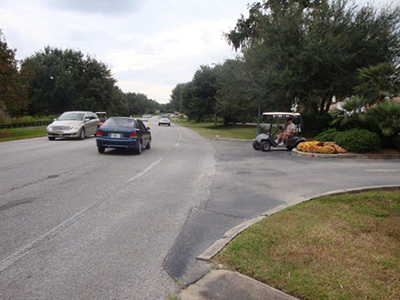Reported Appellate Cases
FLORIDA SUPREME COURT
RANDO v. GOVERNMENT EMPLOYEES INS. CO., 39 So.3d 244 (Fla. 2010)
(With Appellate Counsel Bryan Gowdy)
At issue was the enforceability of the uninsured motorist anti-stacking provision contained in the Rando’s motor vehicle insurance policy which was executed, issued and delivered in Florida to the named insureds residing in Florida and thus subject to Florida law. The Supreme Court of Florida held the anti-stacking provision is unenforceable where the insurer, Government Employees Insurance Company (GEICO) failed to satisfy the informed consent requirement of Section 627.727(9), Fla. Stat. (2005). Click here to read the Florida Supreme Court’s Order in Rando v. GEICO.
U.S. COURT OF APPEALS 11TH CIR.
RANDO v. GOVERNMENT EMPLOYEES INS. CO., 556 F. 3d. 1173 (11th Cir. 2009)
(with Appellate Counsel Bryan Gowdy)
The 11th Circuit U.S. Federal Court of Appeals ruled that the enforceability of GEICO’s anti-stacking provision contained in the Rando’s motor vehicle insurance policy was a question of Florida Law and certified the question to The Florida Supreme Court. Click here to read the 11th circuit U.S. Court of Appeals’ Order in Rando v. GEICO.
FLORIDA’S 5TH DISTRICT COURT OF APPEALS
Doering v. The Villages Operating Company, 153 So.3d 417 (Fla. 5th DCA 2014)
(with Appellate Counsel Bryan Gowdy and Jennifer Shoaf Richardson)
A Villages resident enjoying the Mardi Gras Festival tripped over a raised board on the boardwalk, suffering a fractured femur. The Villages disputed responsibility, arguing the raised board was both open and obvious and part of a common design. After the Trial Court granted Summary Judgment, Florida’s Fifth District Court of Appeals reversed, holding that record evidence established the board in question was in very bad condition -- completely rotted and warped upward between one-half inch and one and one-half inches above the deck’s surface. The court noted expert record evidence that the raised board was out of code. The 5th DCA held that genuine issues of fact existed regarding whether the raised board was a common design element or the result of poor maintenance. Click here to read the Florida 5th District Court of Appeals’ Order in Doering v. The Villages Operating Company.
PETRUSKA v. SMARTPARKS SILVER SPRINGS, INC., 914 2d. 502 (Fla. 5th DCA 2005).
(with co-counsel Robert Seymour)
Factual issues for the jury’s determination regarding poor lighting conditions and improper crowd control required reversal of Summary Judgment granted by the trial court. Click here to read the Florida 5th District Court of Appeals’ Order in Petruska v. Smartparks Silver Springs, Inc.
ROBERTS v. STIDHAM, 19 So 3d. 1155 (Fla. 5th DCA 2009).
(with Appellate Counsel Bryan Gowdy)
Injured motorist established good cause for failure to serve defendant within 120 days under Florida Rule of Civil Procedure 1.070(J); therefore, trial court’s dismissal of the complaint for failure to serve process within the 120 days’ time frame was abuse of discretion, and required reversal. Click here to read the Florida 5th District Court of Appeals’ Order in Roberts v. Stidman.
IMPORTANT GOLF CART CASELAW
ANGELOTTA ESTATE v. SECURITY NATIONAL INS. CO, 117 So.3d 1214 (Fla. 5th DCA 2013)
(Andrew Klymenko, Coleman & Klymenko; George Vaka and Nancy Lauten, Vaka Law Group)
 In 2008 John Angelotta, a retired judge from Cleveland, Ohio, was struck and injured in his golf cart by the drunk driver of another golf cart. The drunk driver’s golf cart had been modified to exceed twenty (20) miles per hour. We represented Judge Angelotta at trial, prevailed with a jury verdict; and took a Final Judgment against Defendant Ralph Snyder. In the subsequent insurance coverage action, Judge Angelotta received an assignment of Defendant Ralph Snyder’s rights and directly pursued Security National Insurance Company.
In 2008 John Angelotta, a retired judge from Cleveland, Ohio, was struck and injured in his golf cart by the drunk driver of another golf cart. The drunk driver’s golf cart had been modified to exceed twenty (20) miles per hour. We represented Judge Angelotta at trial, prevailed with a jury verdict; and took a Final Judgment against Defendant Ralph Snyder. In the subsequent insurance coverage action, Judge Angelotta received an assignment of Defendant Ralph Snyder’s rights and directly pursued Security National Insurance Company.
In an important ruling for the safety of Florida’s golf cart drivers, Florida’s 5th District Court of Appeals held that the modified golf cart was a “low speed vehicle” under Florida law since it was capable of exceeding twenty (20) miles per hour. As a low speed vehicle, Snyder’s golf cart was a “motor vehicle” within the meaning of Florida’s Financial Responsibility law, and was required to be covered under his insurance policy issued by Security National to comply with financial responsibility due to Snyder’s prior DUI.
In the insurance coverage action and on appeal, Judge Angelotta and later his estate were well represented by Andrew Klymenko, of Coleman & Klymenko, LLC, and George Vaka and Nancy Lauten of Vaka Law Group. Click here to read the Florida 5th District Court of Appeals’ opinion in Angelotta v. Security National Insurance Co.


